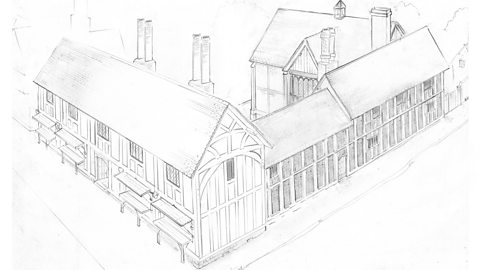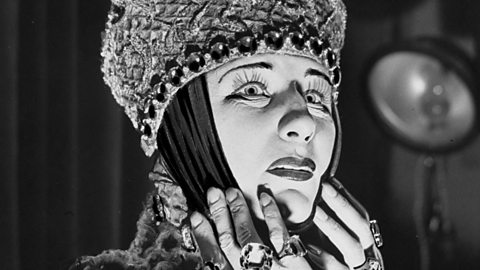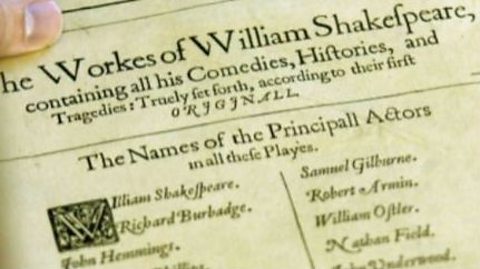Dramatic language
The first thing to remember about Shakespeareβs work is that he wrote plays to entertain. They are dramatic works, and the dialogue was manipulated to suit the stage. Therefore his characters' language did not always reflect how real people would have spoken.
For instance, in As You Like It when Corin, the shepherd, talks of love his lines are beautiful and poetic β but ultimately unrealistic.The lines Shakespeare gave Corin probably wouldn't have been used by an Elizabethan shepherd β instead they function to heighten the drama.
Another example of how the theatrical style informed Shakespeareβs text can be seen in the structure of his lines. According to the practice of the time, Shakespeare wrote his verse in iambic pentameter so it was easier for his actors to learn. When Shakespeare was writing, new plays were performed every day so this 10-beat structure was a great help for anyone having to learn a lot of lines for the next day's play.
Sticking to this structure meant that, on occasion, Shakespeare made up or adapted words to fit. For example, on several occasions Shakespeare changed the word "vast" to "vasty" when "vast" did not fit the rhythm of the line.
The eloquent lines spoken by Corin to Rosalind and Celia in As You Like It probably weren't typical of an Elizabethan shepherd (ΒιΆΉΤΌΕΔ One, 1963).
Language of Shakespeare's London
But if we look beyond the dialogue to the words themselves we can find out a little of how people really spoke.
Click or tap below to find out how language has changed.
Original Pronunciation
Even more could be revealed from Shakespeareβs plays if we could hear them as the Elizabethans did.
And we can come close to this thanks to βoriginal pronunciationβ which is a system of speech that replicates how the Elizabethans are believed to have spoken. Today it sounds like a West Country accent, with echoes of other parts of the country. When we apply this to Shakespeareβs dialogue, rhymes and puns that are not heard in modern English are suddenly revealed.
Further evidence of "original pronunciation" comes from contemporary writers such as Ben Jonson, who recorded pronunciations at the time. This is how we know that the Elizabethans pronounced "r" after vowels.
So through Shakespeare's plays we can find out a great deal about how people really spoke. His dialogue was on the whole representative of the language of the time and area and now provides us with invaluable insight into a lost language.
David Crystal and his son Ben recite RP and OP versions of Muse of Fire from Shakespeare's Henry V (ΒιΆΉΤΌΕΔ Radio 4, 2014).
Learn more about this topic:
A day in the life of William Shakespeare. document
A timeline showing an imagined day in the life of William Shakespeare in Stratford-upon-Avon circa 1604. Made in association with the Shakespeare Birthplace Trust.

Was Shakespeare a feminist? document
Discussing how Shakespeare's plays and poems dealt with women's equality in the Elizabethan age.

Why was Shakespeare so special? document
Michael Rosen explores the work of William Shakespeare and his fellow playwrights, and looks at why his plays in particular have stood the test of time.
